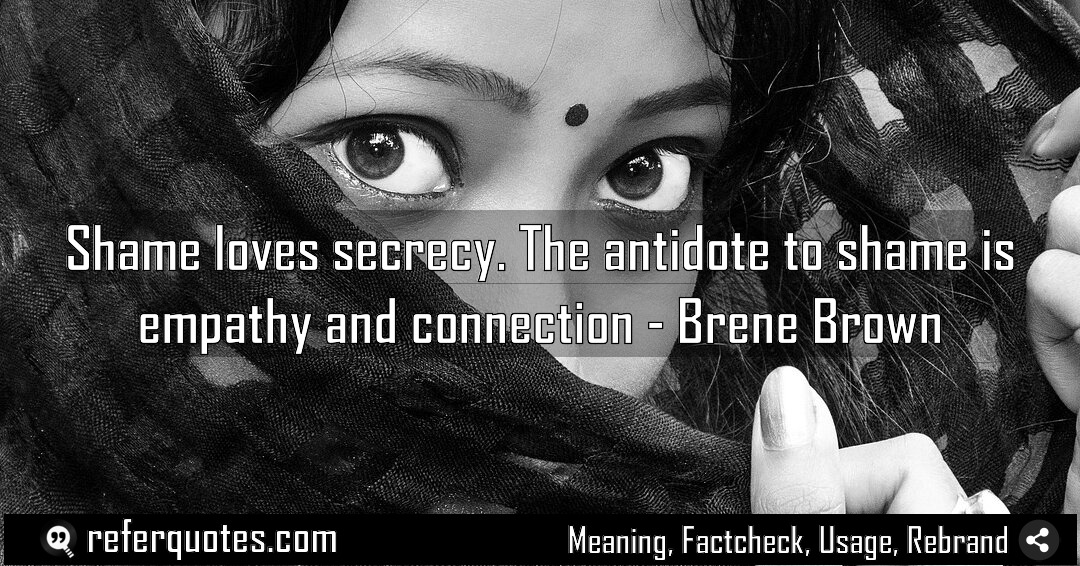You know, that idea that “Shame loves secrecy” is one of those concepts that completely reframes how you lead. It’s not just a feel-good quote; it’s a practical leadership tool that forces you to build real trust and connection, because the moment you bring shame into the light, it loses its power.
Share Image Quote:Table of Contents
Meaning
At its core, this quote means that shame, that feeling of being fundamentally unworthy, thrives when it’s hidden in the dark, and it’s only through genuine human connection and understanding that we can disarm it.
Explanation
Let me break this down for you based on what I’ve seen in teams. Shame is like a parasite. It needs a dark, quiet, isolated host to survive. The second you say out loud, “Hey, I’m terrified I’m not qualified to be in this room,” or “I’m so embarrassed I messed up that client presentation,” you’re shining a light on it. And that light is empathy—when someone responds with, “Oh man, I’ve been there too.” That connection, that moment of “me too,” is literally the antidote. It’s the chemical reaction that neutralizes the poison. It tells your brain you’re not alone. And shame cannot survive that.
Quote Summary
| Context | Attributes |
|---|---|
| Original Language | English (3668) |
| Category | Wisdom (385) |
| Topics | connection (265), empathy (143), shame (13) |
| Literary Style | concise (408), psychological (31) |
| Emotion / Mood | comforting (13), truthful (22) |
| Overall Quote Score | 90 (29) |
Origin & Factcheck
This is straight from Brené Brown’s 2018 book, Dare to Lead. It’s a cornerstone of her research on vulnerability and leadership. You sometimes see similar sentiments floating around, but this specific phrasing and the powerful “antidote” language is uniquely hers, born from decades of studying courage and shame.
Attribution Summary
| Context | Attributes |
|---|---|
| Author | Brene Brown (257) |
| Source Type | Book (4032) |
| Source/Book Name | Dare to Lead: Brave Work. Tough Conversations. Whole Hearts. (29) |
| Origin Timeperiod | 21st Century (1892) |
| Original Language | English (3668) |
| Authenticity | Verified (4032) |
Author Bio
Dr Brene Brown is the author of books such as Daring Greatly and The Power of Vulnerability. The TED talk and Netflix production based on her research reached out to millions of audience. She researches effects of courage and vulnerability in shaping people's work and relationships. She leads the Brené Brown Education and Research Group and provides evidence-based insights into practical tools to help people train themselves
Official Website |Facebook | X | Instagram | YouTube |
Where is this quotation located?
| Quotation | Shame loves secrecy. The antidote to shame is empathy and connection |
| Book Details | Publication Year/Date: 2018; ISBN/Unique Identifier: 9780399592522; Last Edition: Random House 2018; Number of Pages: 320 |
| Where is it? | Part IV: Learning to Rise, Approximate page from 2018 edition: 213 |
